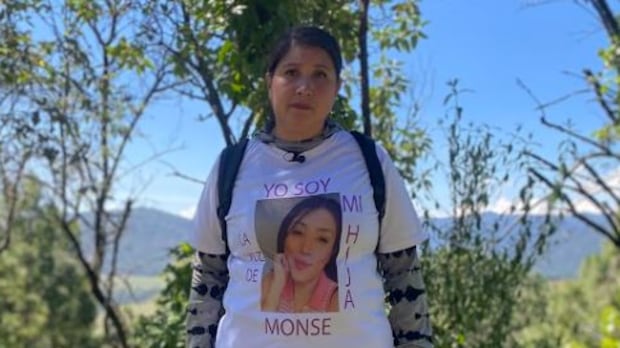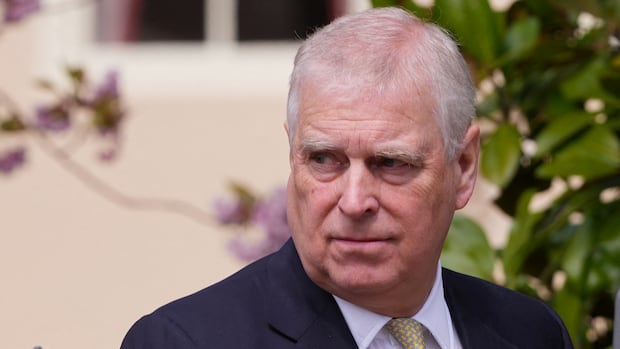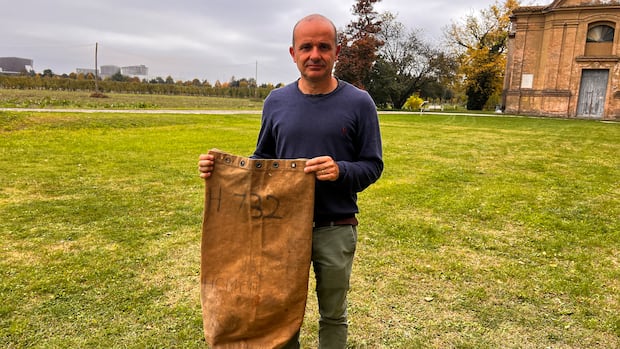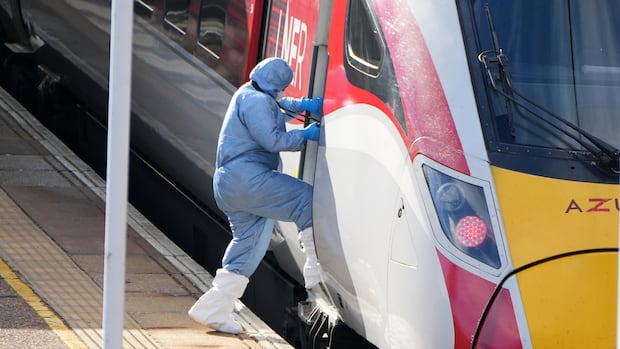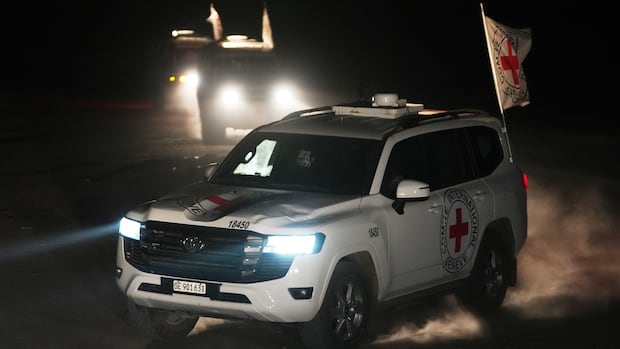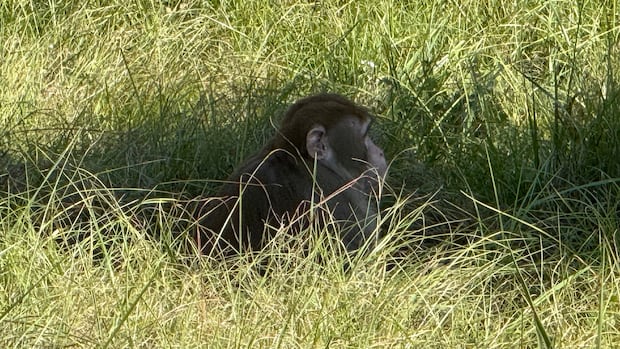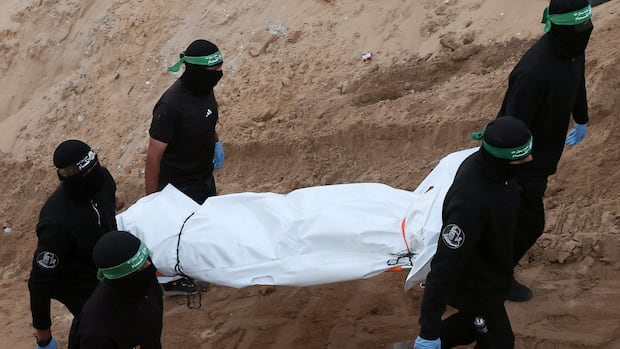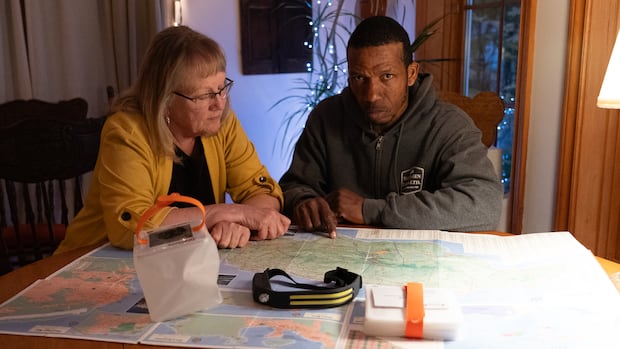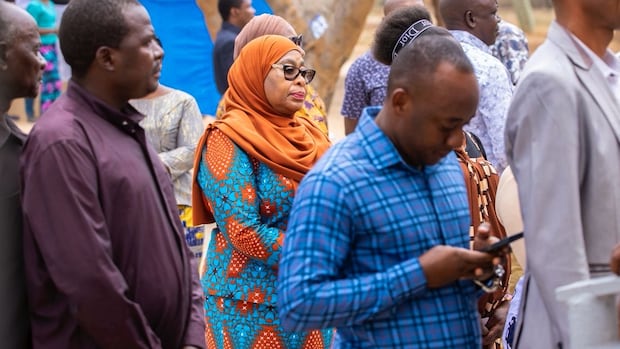Rohan Thompson was keeping a close eye on Melissa from St. Catharines, Ont., where he works as a temporary farm worker, as the Category 5 hurricane approached his homeland earlier this week.
The seasonal farm worker from Jamaica’s Clarendon parish has been in Canada since April, and is scheduled to return home late November or early December.
Thompson could not find the words to describe how he felt after Melissa, one of the most powerful hurricanes to strike the Caribbean, ravaged Jamaica on Tuesday.
“I never get a good sleep [that] night because [of] that devastation,” Thompson told CBC News.
“My girlfriend is from St. Elizabeth, and I tried to contact her. Nothing, nothing … so I don't get much sleep.”
Melissa made landfall just before 12 p.m. E.T. Tuesday, with 297 km/h winds, near New Hope in St. Elizabeth — considered Jamaica’s breadbasket, because it’s where most of the island’s agricultural production takes place.
The hurricane left up to 90 per cent of all structures in Black River, also in St. Elizabeth, without roofs as it snapped power lines and toppled concrete structures. One of the strongest Atlantic hurricanes to make landfall, Melissa has been blamed for at least 19 deaths in Jamaica, and 31 in Haiti.
Between deep sighs, Thompson shared how broken he was after seeing videos and photos of the devastation.
“Oh, my God, I don’t know what to say. It's really heartbreaking to see my country, my parish, just ripped apart,” he said.
“I’m just worried about my girlfriend and her daughter because I don’t know if they’re still alive. If I just could hear from them, my mind and my thoughts would be more contented.”
Thompson is one of many Jamaican seasonal workers in the Niagara region, on whom farms and wineries rely to help during harvest season. Hurricane Melissa has left them concerned.
WATCH | Temporary farm worker Rohan Thompson on Hurricane Melissa's devastation:Rohan Thompson, a temporary worker at a Niagara farm, lived through many other hurricanes that hit Jamaica, but he says nothing compares to the devastation Hurricane Melissa left at his hometown in Clarendon.‘We need to help them’Dale Merrill, a resident from Niagara-on-the-Lake who also has a home in Montego Bay — a city in western Jamaica — fought back tears as he talked about the anguish the storm has caused Jamaican families.
“They come here to help us. We need to help them,” Merrill said.
Merrill co-owns a construction company on the island, called E-Z Block Manufacturing Jamaica, that installs concrete walls made to resist earthquakes and hurricanes.
“All my workers that are over [in Montego Bay], our factory over there, I haven't heard from anyone,” Merrill told CBC in an interview this week.
“Houses that may have been able to survive some other storms wouldn't make it through this one,” Merrill said. “When you're talking 250-mile an hour winds, they've never seen that before.”
WATCH | 'They come here to help us. We need to help them':Niagara resident Dale Merrill, who also has a home in Montego Bay, says first thing we should do to help is check in with families of Jamaican temporary workers. He says “our farmers here rely on them.” ‘The memories of Gilbert come back to me’Zepheniah James, a calypsonian from Montego Bay, says he’s been living in Niagara Falls for many years and performs at events across the region.
James says he remembers Hurricane Gilbert, another Category 5 hurricane that swept the Caribbean in 1988, after seeing the aftermath of Melissa.
“I've been there before and I know what people right now in Jamaica [are] going through, and it's not easy,” James told CBC News.
“When it comes, it sings. I've been in it already. It sings songs,” James said about the strong howling winds from hurricanes.
He attempted multiple times to reach his daughter, who lives back home in Montego Bay, but he was only able to see what’s happening in his hometown from his television.
On Wednesday, James finally got a hold of his daughter, calling out for her father on the other side of the line.
His home in Montego Bay, where his daughter lives, no longer has a roof, he said.
“I have a business place in the … Montego Bay Craft Market. It's all down to [the ground],” he said.
He says that what many Jamaicans are experiencing is “not easy,” he asks people to help if they can.
“[People] who have friends in Jamaica, think about what you can do, if you got a friend down there, to ease the pressure because everybody's trying to survive,” he said.
WATCH | Zepheniah James's home, where his daughter lives, no longer has a roof:Zepheniah James, a calypsonian living in Niagara Falls, learns his home in Montego Bay, where his daughter lives, no longer has a roof.Niagara’s relief efforts after Hurricane MelissaFollowing the storm, Niagara-on-the-Lake resident Jane Andres reached out to friends and neighbours on Facebook, asking for donations to fund disaster relief supplies for Jamaican seasonal farmers in Niagara to bring when they fly back home to Kingston, the Jamaican capital.
Andres became close friends with the seasonal workers through church services and would often, over the last 20 years, visit the farms where they worked.
“The ones I've been visiting are primarily on the west side of the island, so they haven't had any conversation with loved ones since [Tuesday] morning,” she said.
Parts of Jamaica where Melissa hit are facing power outages. She ordered sets of headlamps and solar powered lamps that can charge cell phones and last up to eight hours.
Andres also asks that Air Canada increase their checked luggage allowance from one to two bags, so Jamaican seasonal workers can bring the lifeline supplies to the country.
In an email statement to CBC News, Air Canada says it is not possible to change their baggage policy due to the physical limitation of the aircraft that flies into Kingston.
Flights to Montego Bay allow for two checked bags, however, the city’s airport is temporarily closed due to safety concerns from the hurricane, leaving Norman Manley International Airport in Kingston as the only option for farm workers.
Air Canada also wrote in their statement: “[...] the most effective way to help impacted communities is through donations to support recognized relief organizations.”
Double-check organizations asking for donationsEarlier this week, Chris Garwood, a representative with the Jamaica Foundation of Hamilton, said people who decide to help should make sure they go through official channels to avoid scammers.
“We have already seen some nefarious activities where people are posting as if they're collecting on behalf of Jamaica, using URLs that are very close to what the government has set up, but it's not the same.”
The government of Jamaica has established a website to mobilize support after the hurricane.
Garwood said people who are in doubt should call the Jamaican consulate general’s office in Toronto, or the Jamaican high commissioner's office in Ottawa.


